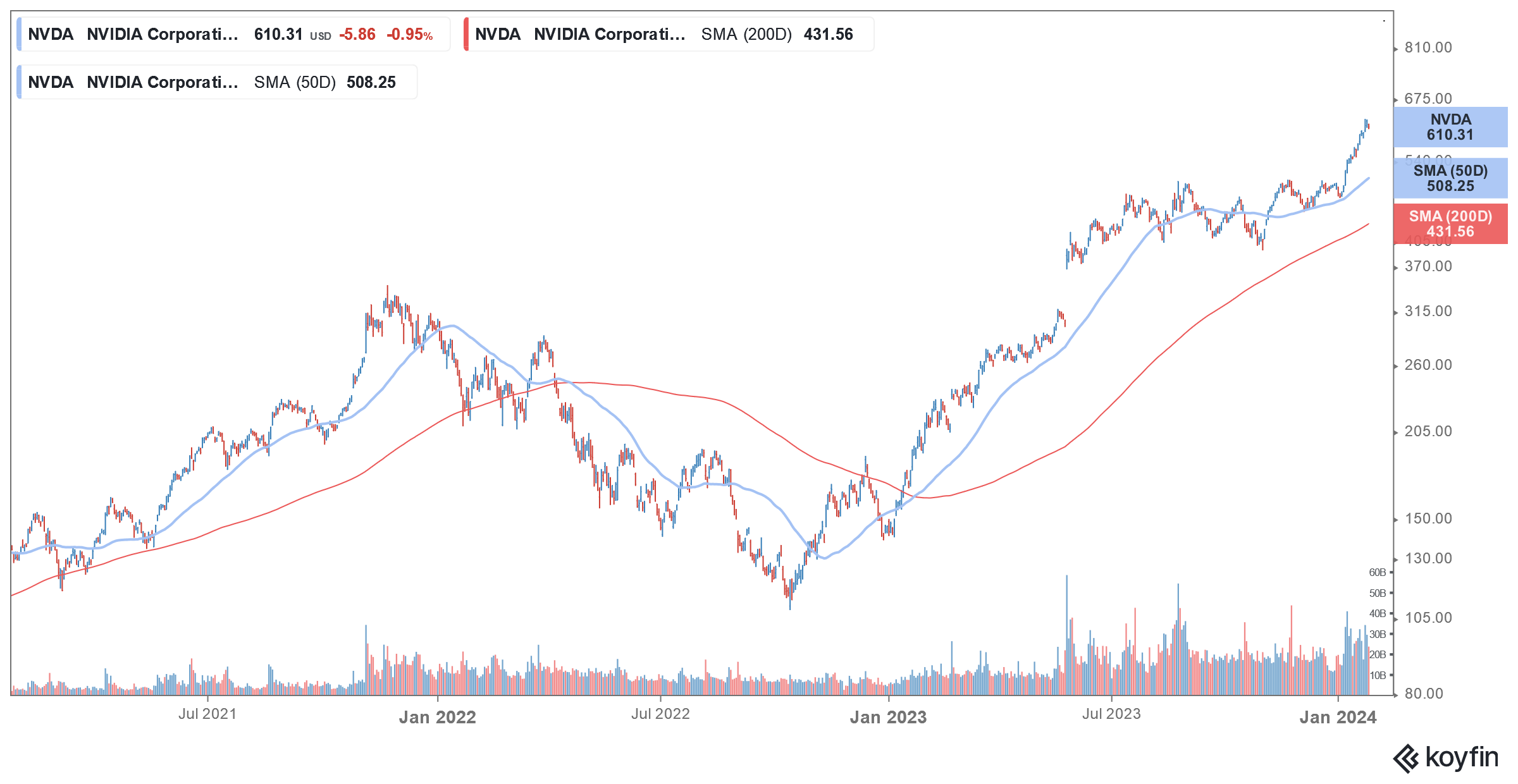Biden Reportedly Looking to Announce Chip Subsidies to Spur Production
Please note that we are not authorised to provide any investment advice. The content on this page is for information purposes only.
The Joe Biden administration is reportedly looking to announce billions of dollars in subsidies to spur the production of advanced chips in the US as part of the CHIPS Act which was passed in 2022.
The Wall Street Journal reported that Biden could announce billions of dollars in new subsidies for Intel, Taiwan Semiconductor Manufacturing Company, and some other semiconductor companies and the announcement could be made ahead of Biden’s State of the Union address in March.
Notably, while the Act was passed in 2022 it hasn’t made much headway and to date, only two tiny grants have been made, and even they are to companies producing less advanced chips. Now, with the 2024 elections approaching, Biden is looking to spur investments in the chip manufacturing industry.
According to William Rinehart, a senior fellow for technology and innovation for the American Enterprise Institute, a think tank, “There is pressure obviously to get the big names funded before things start really heating up.”
Table of Contents
Biden reportedly looking to announce subsidies for chip production
Meanwhile, it’s not certain that the subsidies will be announced and that all companies will be the beneficiaries even if they are announced. Michael Schmidt, director of the Chips Program Office said, “Certainly, in the early part of this year, we will be announcing major progress.” He added, “We are on schedule.”
However, a Commerce Department spokeswoman refrained from providing much details and said, “This is a merit-based process with tough commercial negotiations—CHIPS awards will be entirely dependent upon which projects will advance U.S. economic and national security.”
The US is looking to spur advanced chip production
The US is looking to spur the production of advanced chips in the US and the Senate has passed a bill exempting major Chips Act projects from NEPA review – it hasn’t yet managed to clear the House as some Republicans want the ambit to the exemptions to be widened to include more industries.
Sen. Mark Kelly (D. Ariz.), a lead author of the Senate bill said, “The process could take five years and that’s not the intention of why we are doing this thing.” He added, “We are trying to get these chips built here in the United States as soon as we possibly can.”
What’s holding back higher semiconductor production in the US
According to Jimmy Goodrich, a semiconductor expert advising Rand Corp “The chip industry is capital-intensive and, as such, firms need predictability.”
He added, “They will hedge significant investments such as purchasing equipment, which accounts for 80% of fab costs, until they are certain that there is market demand and that government incentives will be in place at the level needed to compete globally.”
Furthermore, other countries are also wooing chipmakers to boost their domestic production. “The main reason is the lead time and the alternatives that these firms have,” said John VerWey, an adviser on security and technology at the federal Pacific Northwest National Laboratory who has studied regulatory hurdles for plant constructions in the U.S.
He added, “When TSMC wants to build a fab in Taiwan or in Japan, they can do so much faster than they can in the U.S.”
Many believe a shortage of labor would also be a hindrance to scaling up US chip production.
The US-China chips war is heating up
Reports of chip subsidies are coming at a time when the US-China tech war is heating up. In 2022, the US imposed restrictions on chip exports to China and some other countries and further tightened them last year to prevent the exports of chips that have processing powers just under the banned chips.
The restrictions have taken a toll on US companies like Nvidia. CEO Colette Kress said during the fiscal Q3 earnings call, “We expect that our sales to these destinations will decline significantly in the fourth quarter, though we believe will be more than offset by strong growth in other regions.”
She also warned, “The export controls will have a negative effect on our China business, and we do not have good visibility into the magnitude of that impact even over the long term.”
Meanwhile, Nvidia is working with US regulators to develop new products for China, and in December it announced a new gaming chip for China.
“The GeForce RTX 4090 D has been designed to fully comply with U.S. government export controls. While developing this product, we extensively engaged with the U.S. government,” said a Nvidia spokesperson.
Alibaba shelved the IPO of its cloud division
In November, Alibaba scrapped plans to list the cloud business “in light of uncertainties created by recent U.S. export restrictions on advanced computing chips.” The company said, “Instead, we will focus on developing a sustainable growth model based on emerging AI-driven demand for networked and highly scaled cloud computing services.”
Notably, the US has banned the exports of high-end chips to China which might hamper the AI ambitions of Chinese tech companies.
During the earnings call, Alibaba said, “when we announced the full spin-off, we were looking at a way to sort of a financial engineering way to show the value of the business.” It however added, “But the circumstances have changed. And right now, rather than focus on financial engineering, we rather focus on figuring out how to grow the cloud business.”
Alibaba and other Chinese stocks have continued their dismal run in 2024 amid growing apprehensions about the world’s second-largest economy. Meanwhile, even as China mulls a rescue package for markets, Chinese stocks have been almost “uninvestable” for many fund managers including Cathie Wood who sold off all the Chinese stocks that she was holding in the portfolios.






